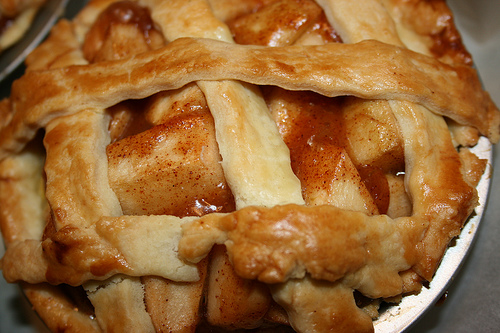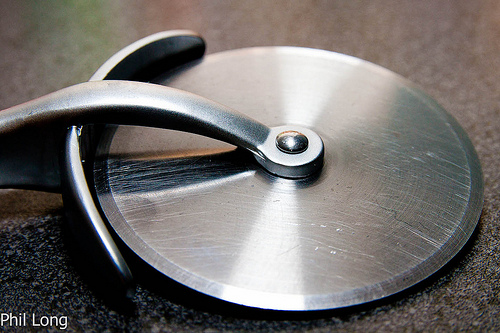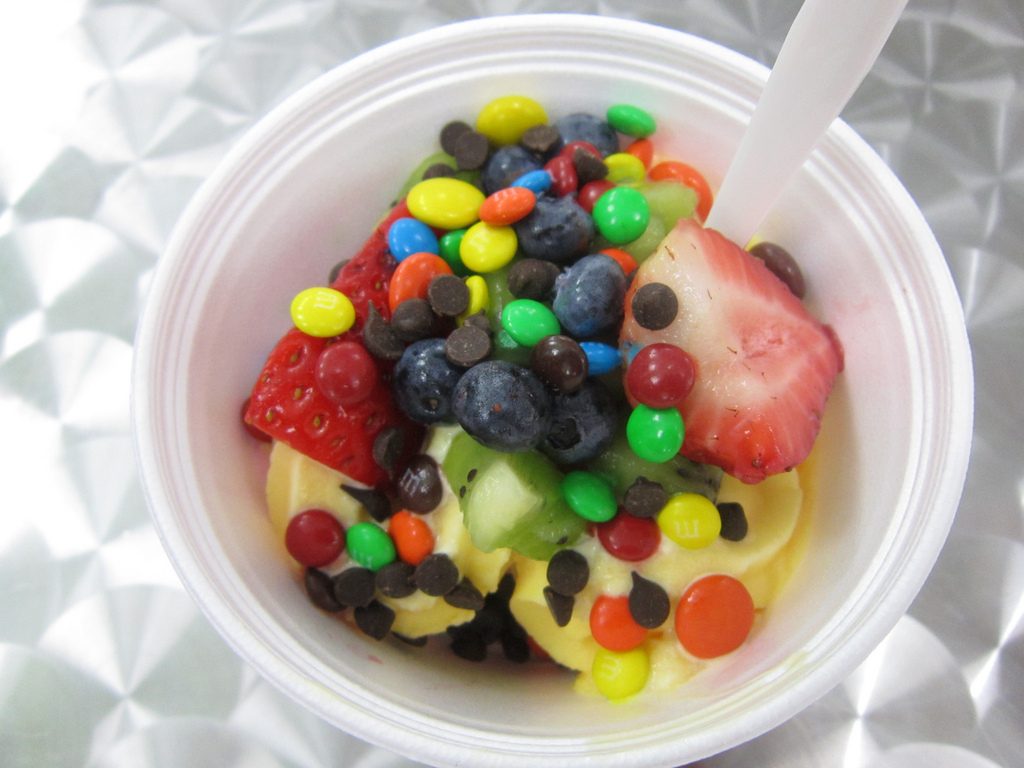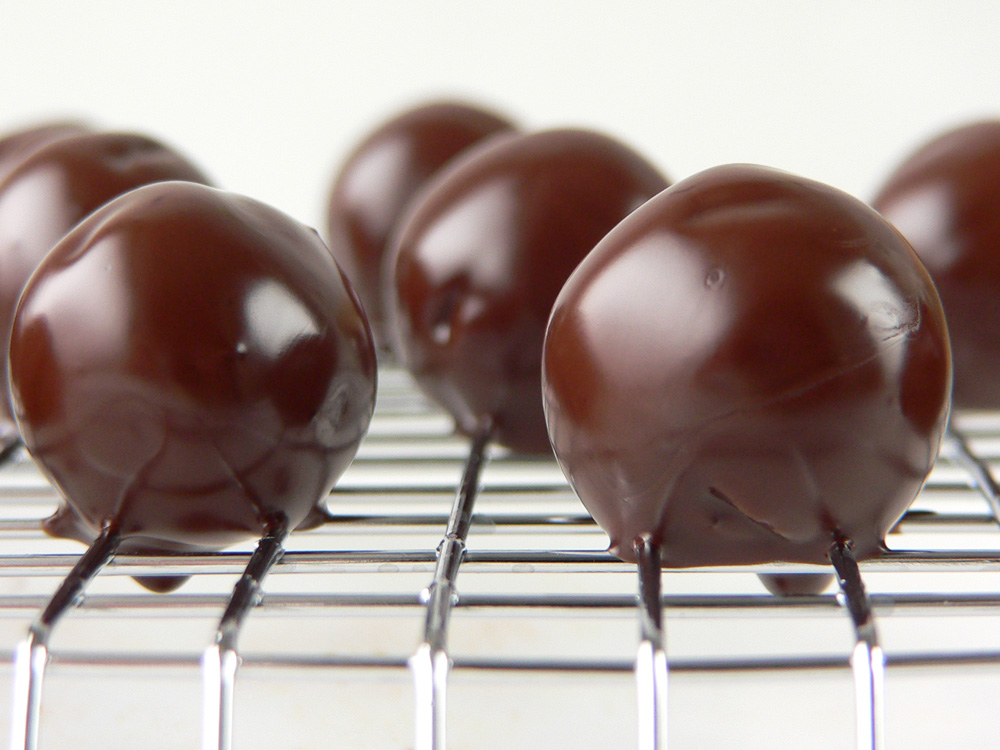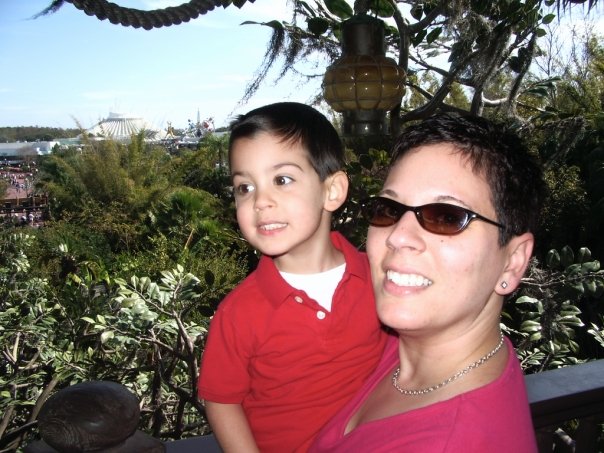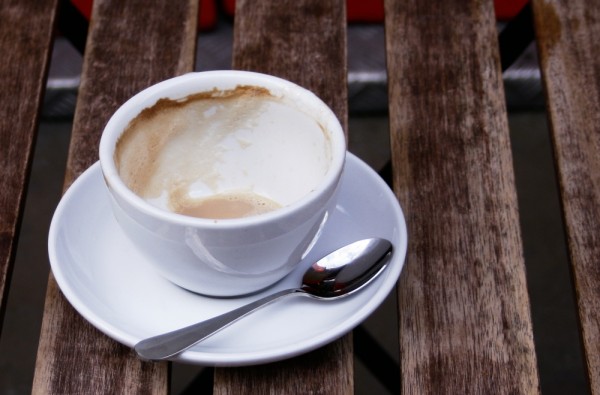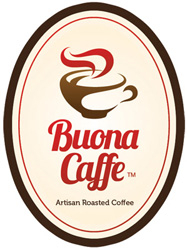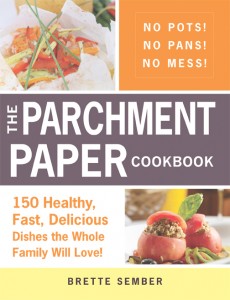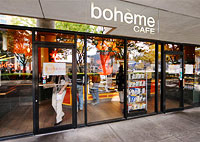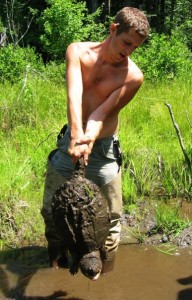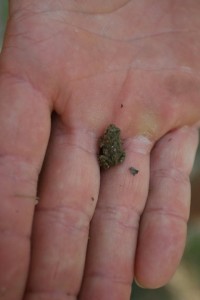Yummy, yummy in my tummy… the old saying goes. Amy Hassler has been a pastry chef for more than 10 years, and just interviewing her made my mouth water. What a fun job she has! I guess she’s a great example of someone who needs to know math to do her job and a great example of when math can be fun and have big rewards… like a tasty apple pie at the end!
Can you explain what you do for a living?
During my career, I’ve worked for restaurants, retail bakeries, country clubs, and even grocery stores. I make bread and pastries, usually from scratch, decorating cakes and cookies, as well as making candy.
When do you use basic math in your job?
The math I use ranges from the very basic: using measurements like volume, weight, time and temperature, to more common: figuring out food costs in order to determine appropriate price points, scaling recipes, converting measurements when making substitutions, and determining how much of each item needs to be produced in order to meet demand.
Most professional pastry recipes are written by measuring ingredients by weight instead of by volume in order to make scaling more foolproof. For example, if you ask ten different people to measure 1-3/4 cup of flour, you will likely get ten different actual amounts of flour, due to the amount of air left in the measuring cups they used. Depending on whether someone packs the flour or scoops or pours into the cup, each of these results in slightly different amounts of flour. When you work on a small scale, as a home baker does, these differences might not be significant enough to notice. But when instead of making 2 dozen cookies, you’re making 40 dozen, suddenly that discrepancy can make a big difference in the consistency of the finished product. So instead of measuring by volume, we measure by weight. 12 ounces of flour is much easier to multiply by 20 on the fly than 1 3/4 cups!
Do you use any technology (like calculators or computers) to help with this math? Why or why not?
Calculators may be found in some kitchens, but it’s not common, due to the difficulty of keeping them free of contamination while working with food, and it’s difficult to wash a calculator or sanitize it thoroughly once it’s become dirty. We use tools like thermometers and scales for our measurements, though, and it’s very important to keep those tools properly calibrated. Often times, as ovens and other cooking equipment get older, their temperature calibrations may be off, and you need to make adjustments to time or temperature settings to offset the difference. Similarly, a mis-calibrated thermometer can ruin recipes using yeast, chocolate or boiled sugar as all of these behave differently at different temperatures. If a thermometer is off by even just a single degree, it can result in chocolate candies that won’t harden properly.
How do you think math helps you do your job better?
Math equals accuracy! In the food business, food costs can be the difference between a thriving business and bankruptcy. Always knowing how much it costs to produce a finished product based on the cost of the ingredients you use is necessary to make sure that the business is charging the correct price for that product. And proper measurements, including properly scaled recipes when increasing/decreasing batches, means less waste. I’ve seen enormous amounts of food go to waste because someone couldn’t bother to figure out how many trays of cookies they’ll need to fill an order properly!
How comfortable with math do you feel? Does this math feel different to you?
I’m very comfortable with “everyday” math. When it’s used in practical applications, it’s easy for me to grasp. Theoretical math is a whole different story!
What kind of math did you take in high school? Did you like it/feel like you were good at it?
I took an Algebra and a Geometry course in high school, and I barely passed. I was horrible at it and found it very difficult to see the usefulness of it at the time. It wasn’t until I was in college that I gained an appreciation for it.
Did you have to learn new skills in order to do the math you use in your job? Or was it something that you could pick up using the skills you learned in school?
Luckily for me, my culinary degree included a math course designed specifically for foodservice. It focused on the types of tasks we see most often: scaling recipes (taking a recipe written for 2 dozen cookies and changing it to make 10 dozen, or one for 4 pies into one for just one pie), substitutions and conversions of recipe ingredients or measurements, calculating food costs, calculating supplies based on final production target, etc.
I’m pretty sure I’d have figured all of these things out on my own eventually but having the class helped and made it easier.
Anything else you want to mention?
I heard the jokes about pastry chefs a lot in culinary school, and I’ve found it to be true in the real world as well: there is an enormous personality difference between pastry chefs and the standard “culinary” chef. A chef making a soup or pasta dish, for example, can change his mind halfway through the cooking process and add ingredients, or change cooking methods (assuming the chef is skilled enough). Pastry does not work that way. Pastry chefs tend to be quite a bit more scientific and calculating because our products must be perfect before the baking process begins, or it will be ruined. A chef is able to taste his soup and add salt, but if my pie crust needs salt, I have to start over! This difference in styles means different personality types are definitely drawn to one specialty over the other.
If you want to be like Amy, buy the book that will help you with cooking math here. In the meantime, go bake a cake… with correct measurements, of course.

